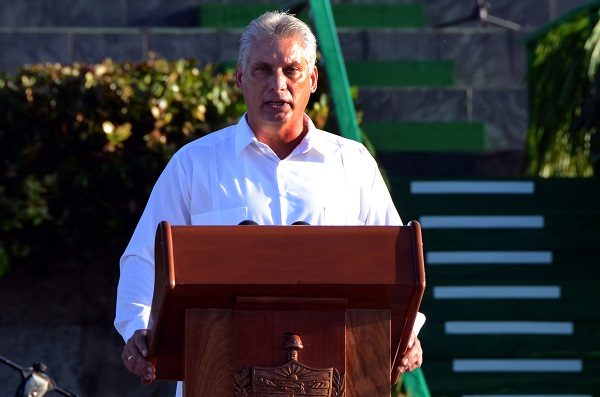Havana, President Miguel Diaz-Canel acknowledged that Cuba is facing fuel shortages, but insisted the island will not experience a repeat of the severe economic hardships of the 1990s.
“We are not in a special period,” he told Cubans in a nationally televised address on Wednesday, using the common shorthand for the slump the island endured as a result of the end of subsidies from Moscow following the dissolution of the Soviet Union in 1991, Efe news reported.
Fuel shipments to Cuba were interrupted Tuesday and are not expected to resume until the weekend, the president said.
The main problem is a shortage of diesel, which fuels the Cuban bus fleet and most of the island’s power plants, Diaz-Canel said, while vowing that the electricity will remain on.
In view of the “temporary situation,” the Cuban government and people must take steps to conserve energy, he said. The president also urged people to report any instances of fuel theft or hoarding.
Diaz-Canel placed the blame for the interruption of supplies squarely on the United States, accusing Washington of “acting with greater aggressiveness toward Cuba” in the hope of making life worse for ordinary people to trigger a “social explosion.”
President Donald Trump has tightened the decades-old US economic embargo on Cuba and is targeting Havana over its alliance with the leftist government in Venezuela, which Washington is trying to topple.
In a bid to hit two birds with one stone, the Trump administration has imposed sanctions on shipping companies that carry Venezuelan oil to Cuba.
Seeking to reassure the populace, Diaz-Canel said that Cuba produces 40 percent of the petroleum it needs, enough to keep power plants running and avert blackouts.
Lines have been seen at Havana service stations over the past few days. Some stations have shut down entirely, while others have run out of diesel.
The public transit company has suspended service on a number of bus routes and there are more pedestrians on the streets than usual.










